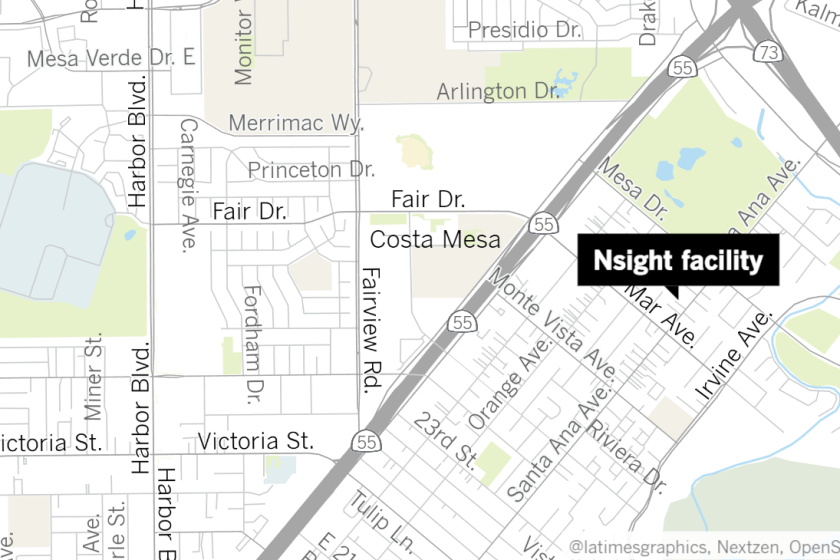Federal judge says Costa Mesa must accommodate residents of mental health home
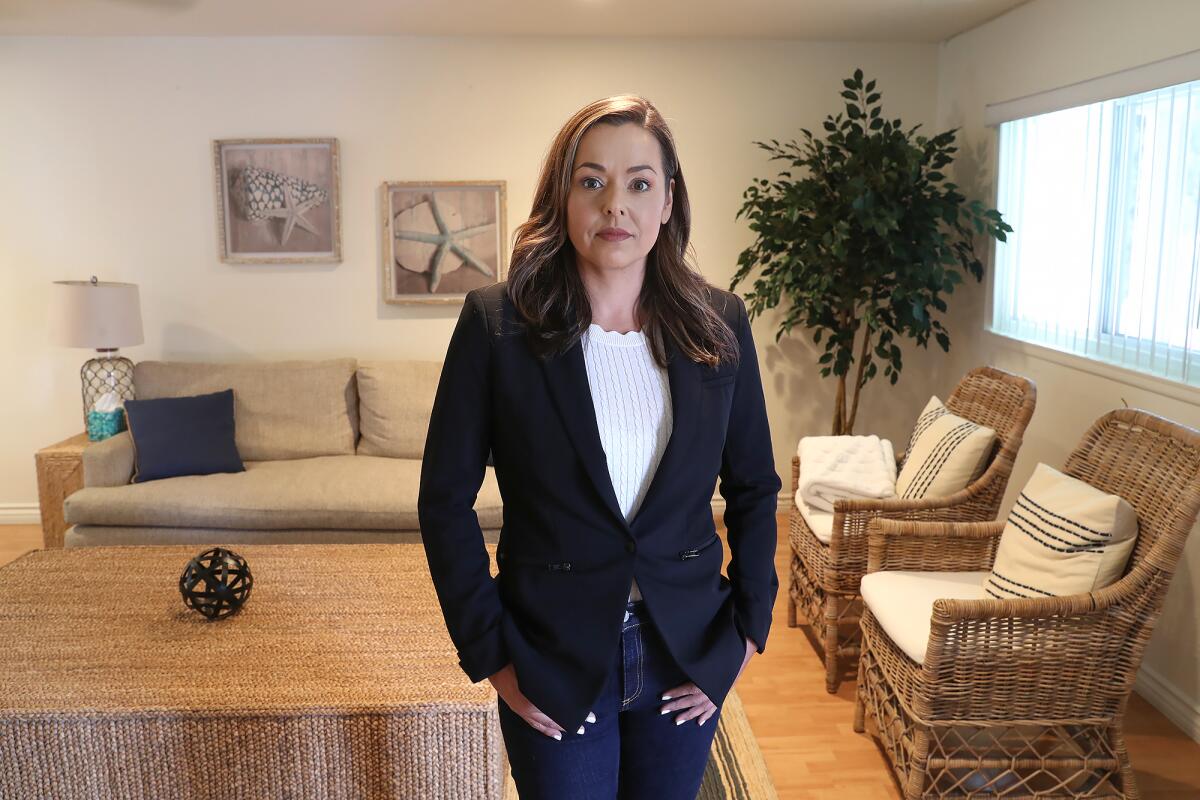
- Share via
Mary Helen Beatificato saw the “For Lease” sign outside a six-unit apartment building on Costa Mesa’s Santa Ana Avenue and knew she’d found the perfect spot.
She and then-business partner Dr. Gerald Grosso, co-founders of Insight Psychology & Addiction (doing business as Nsight), had been looking for a property to house up to 30 adult clients recovering from addiction, many of whom had mental health issues not being adequately treated in traditional sober living homes.
The building had just been renovated, so the pair began moving in clients by early 2015. By that time, the business model had shifted from addiction treatment as a larger need for mental health housing began to surface, according to Beatificato.
“We were sending them to sober living, but they had a primary mental health diagnosis,” she recalled Wednesday. “And those sober living [facilities] don’t let them have certain medications, because they’re controlled substances, but our clients need those controlled substances in order to function. “It was out of that that we went, why don’t we solve our own problem and start providing housing?”
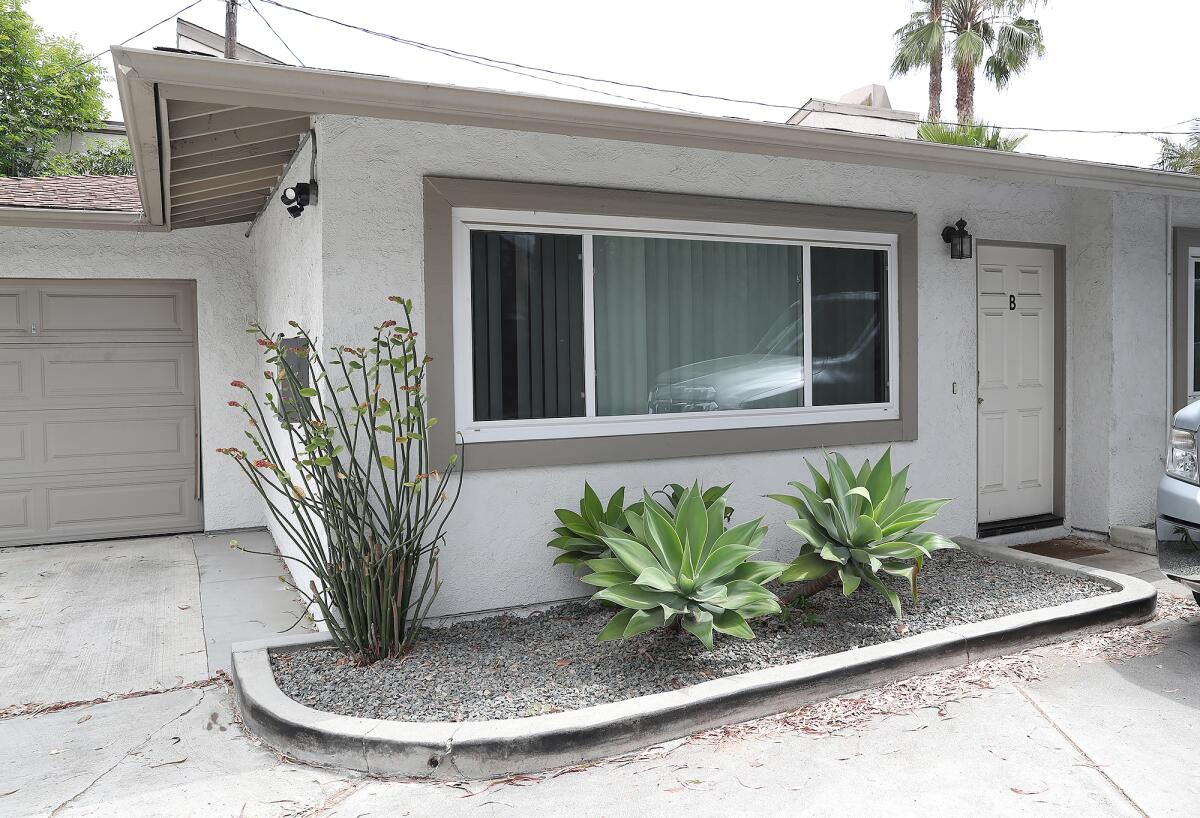
Residents diagnosed with PTSD, major depressive disorder and anxiety, even those without addiction issues, now stay roughly 45 to 90 days in a transition from 24-hour psychiatric care to their home lives.
When the site first opened, Costa Mesa had just crafted a law regulating group homes in areas zoned for single-family use, but there were no such restrictions for multifamily residential parcels.
All that changed in November 2015, when city leaders adopted an ordinance requiring group home operators to obtain conditional use permits and stipulating facilities could not be located within 650 feet of one another.
Beatificato said she’d learned of the new law months later, when city staff notified her Nsight would need to obtain a use permit. She drafted up the paperwork in October 2016 — and waited.
In the two years that followed, other sober living facilities opened on nearby University Drive, in unincorporated Orange County outside city limits. Real estate records show transactions in November 2015 and October 2017.
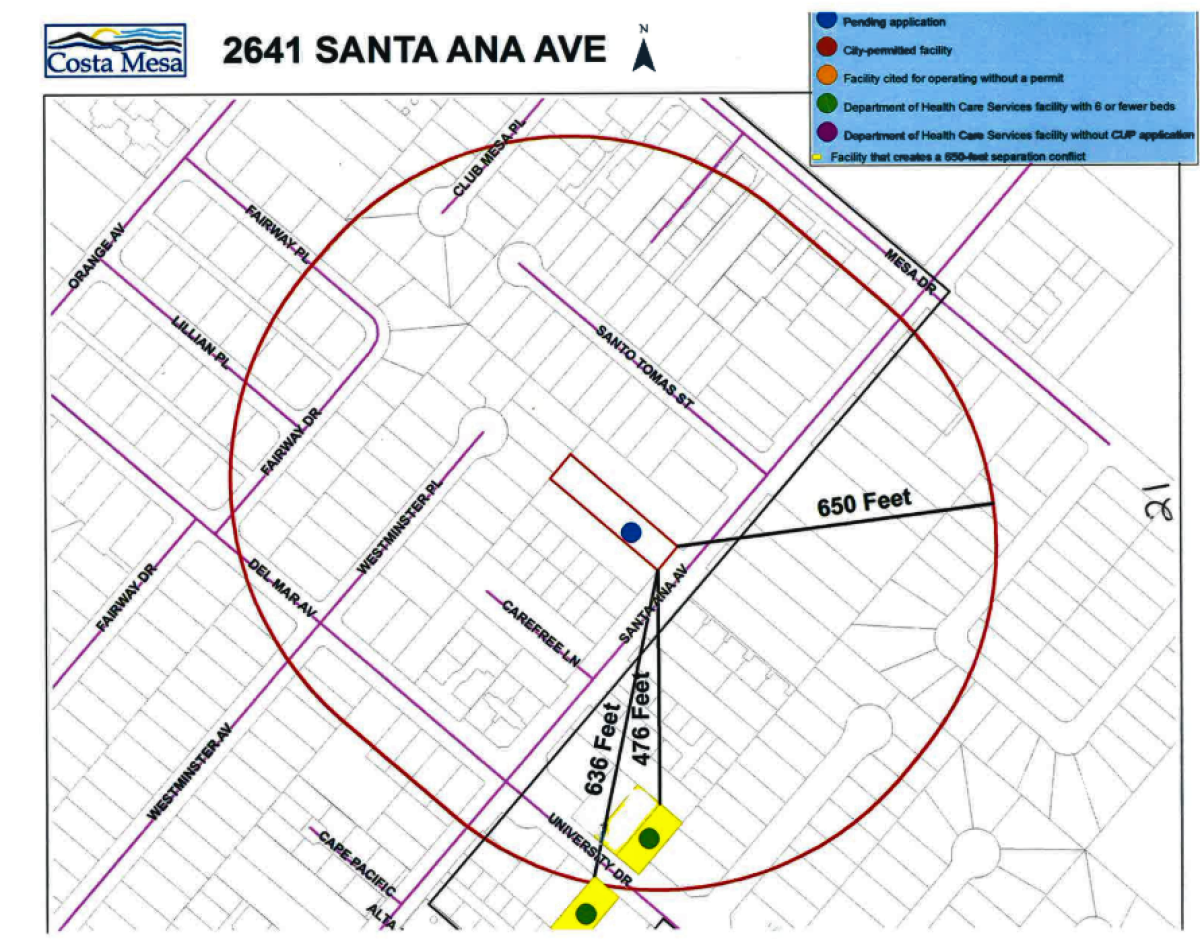
Four addiction treatment businesses on three properties fell within 650 feet of Beatificato’s mental health treatment center. Soon enough, the city’s development director called with bad news.
“[She] said, ‘Hey, we just learned there’s another facility in this unincorporated area. My recommendation is going to be to deny this CUP, unless you can get reasonable accommodation.’ So I immediately did that,” Beatificato recalled.
When Nsight administrators sought exemption from the 650-foot separation requirement — given their facility had been operating before the law passed and that other facilities outside had opened while they awaited administrative approval — the request was denied.
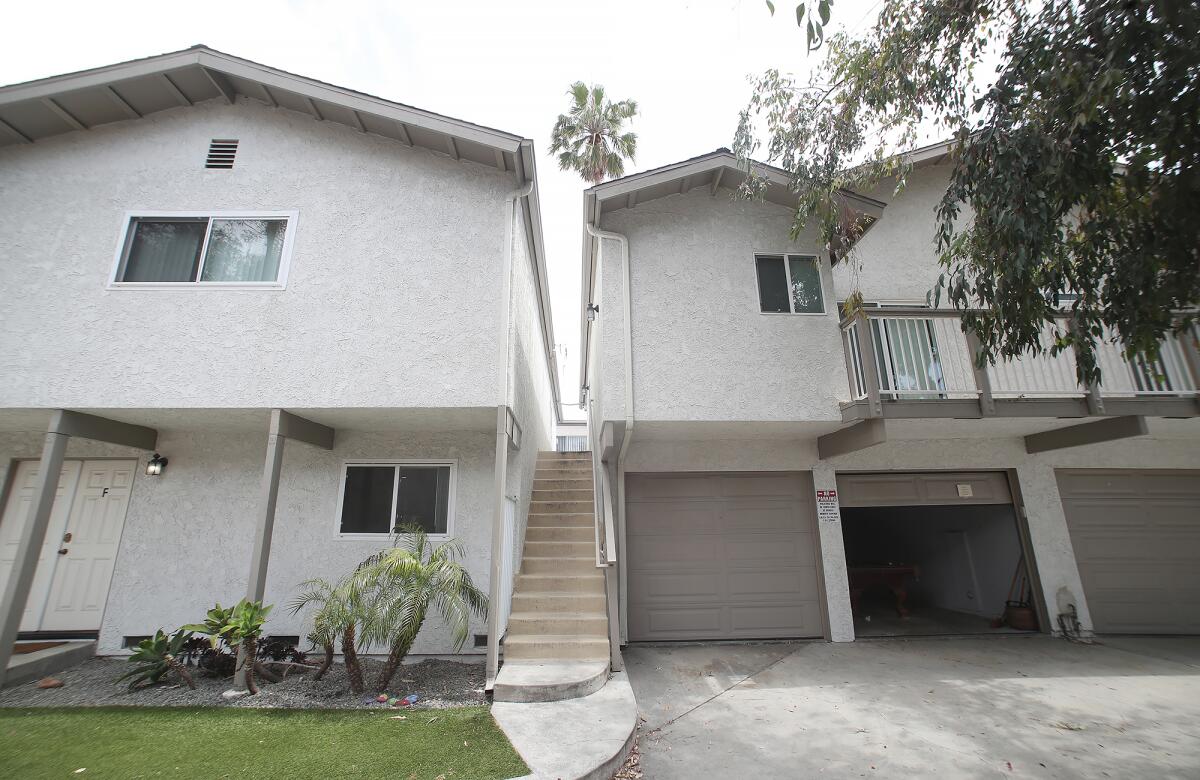
Appeals before the Planning Commission and City Council were similarly denied, as officials, aware of a growing problem with the proliferation of sober living homes, openly doubted Nsight’s assertion the facility no longer focused on substance abuse.
Beatificato, a licensed attorney, realized her only chance for remediation would be a court ruling. In March 2020, Nsight filed a complaint in the U.S. District Court that claimed the city’s denial violated the Americans with Disabilities Act (ADA) and other federal and state housing laws, in that it denied housing for people with mental disabilities.
Alisha Patterson, of Irvine law firm Rutan & Tucker, represents Nsight and says the city has consistently viewed all residential facilities as group homes without distinguishing among different specialties or clientele.
“They kind of looked at the volume of group homes in total and said we can’t have one more — it doesn’t matter if you’re the only group home of your type,” she said Thursday. “They did, in the litigation, try to imply that if we shut you down , there’s plenty of other group homes. But the residents of Nsight can’t just move to a sober living home.”
The council’s vote Tuesday upheld a Planning Commission decision to deny Nsight Psychology & Addiction’s application for a conditional use permit to continue providing therapeutic housing for up to 30 patients in a six-unit complex at 2641 Santa Ana Ave.
Costa Mesa’s attorneys contend reasonable accommodation for disabled individuals would be necessary only to create parity with rights already enjoyed by non-disabled people.
“Because ‘there is no comparable housing opportunity for non-disabled people’ in the R1-12 zone, a reasonable accommodation was not necessary ‘to achieve equality of opportunity in any sense,’” they wrote in June 2020, claiming an accommodation would constitute preferential treatment.
After years of legal back and forth and a judicial reassignment, both parties asked U.S. District Court Judge Maame Ewusi-Mensah Frimpong to rule on some facts not under dispute.
The city requested one kind of civil rights claim to be stricken, as it applied to businesses and not local governments. Frimpong agreed in a March 20 ruling for summary judgment.
“I feel vindicated.”
— Mary Helen Beatificato, chief executive officer of NSight Psychology & Addiction
The ruling also favored Nsight’s request for reasonable accommodation from the city’s separation requirement, due to the fact that no such similar housing exists in Orange County.
“Without [Nsight’s] housing, its residents are significantly more likely to regress after leaving residential care and end up back in the hospital, or worse,” Frimpong wrote. “The city declined to present any evidence to controvert [Nsight’s] evidence that its request for accommodation was reasonable and necessary. It has therefore failed to create a genuine issue of material fact.”
Beatifico, who estimates she’s spent more than $1 million and countless hours on the matter, said she was thrilled to read the ruling.
“I feel vindicated,” she said Wednesday.
Other elements of the lawsuit will continue to be processed through the federal court system, potentially leading to a jury trial. Beatificato hopes officials might amend ordinances to allow for more mental health housing.
City Atty, Kimberly Hall Barlow, however, stood behind the city’s sober living laws.
“The city has prevailed at trial every time it has defended its ordinances,” she said in a statement Thursday. “The jurors have resoundingly spoken in favor of the city’s ordinances in multiple trials, the appellate court has affirmed one of those trial outcomes, and we expect this outcome to be the same.”
The two parties are scheduled to confer next week ahead of a June 27 settlement conference.
All the latest on Orange County from Orange County.
Get our free TimesOC newsletter.
You may occasionally receive promotional content from the Daily Pilot.

